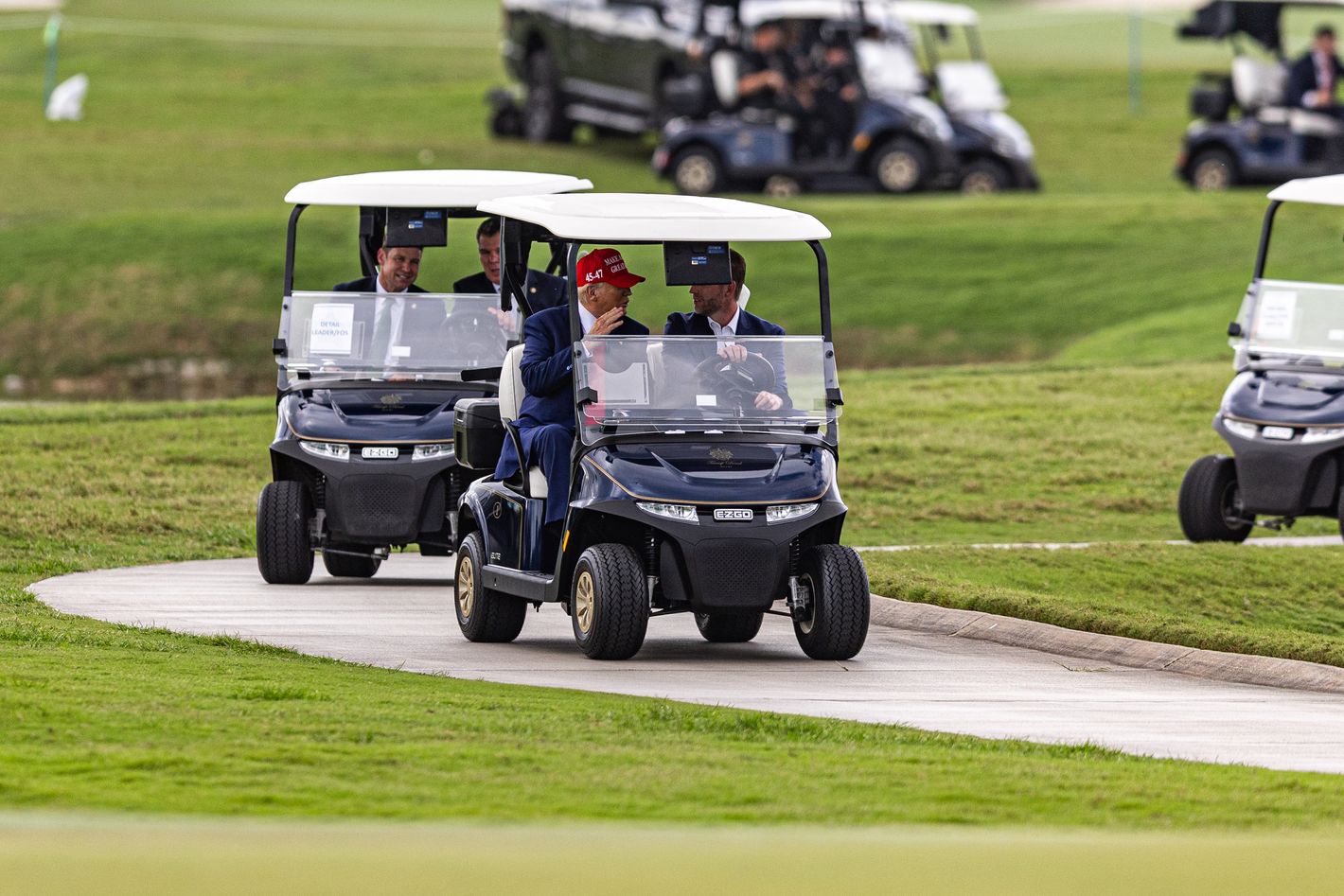Photo: Lauren Sopourn/Getty Images
As global markets continue to melt down in reaction to the president’s tariff program and his manifest willingness to wage a trade war, the question of the day is whether these adverse signals of real-world economic consequences will restrain him. To answer that question with another: Why would anyone imagine such a thing?
By now, it should be universally understood that the second Trump administration is based on sweeping away absolutely any limitation on presidential power. Trump has created a Cabinet in which demonstrating loyalty to the president is the only real criterion. He has demanded and received the most craven submission to his every whim from the two men who run Congress, Mike Johnson and John Thune. This includes surrendering long-established congressional authority over tariffs, spending, and statutory guidance of federal agencies.
The two men with whom Trump has shared his completely unprecedented executive authority are each deeply committed to the fullest exercise imaginable of arbitrary power. Russell Vought has what can only be described as a religious belief in the necessity of destroying even the smallest reservoir of non-MAGA thinking anywhere in the federal bureaucracy. Elon Musk may not be religious, but has made it clear he thinks civilization itself requires the utter demolition of the governmental status quo ante. Neither Vought nor Musk has any authority that is not derived from Trump’s own limitless concept of his place in the constitutional scheme.
And all this vast concentration of power is invested in a 78-year-old man full of grievances and resentments who knows his time on top of the world is limited by nature if not by law. There is absolutely no reason to think he cares about polls or special elections anymore, and if he can get his “big, beautiful” budget-reconciliation bill through the legislature later this year, he has little to fear from the 2026 midterm elections either. Yes, federal judges continue to pester Trump and his appointees here and there, but there he still has reason to hope that the U.S. Supreme Court will ratify his most important power grabs.
So there’s no particular reason to think that all the flashing red lights and sirens going off right now are going to influence Trump’s conduct. And indeed, there’s lots of evidence they won’t. Markets rallied magnificently on Monday morning when a false report emerged on social media that Trump was considering a 90-day “pause” on all the freshly imposed tariffs (other than those affecting China). Then the White House hastened to denounce that report as “fake news.” It’s as though Trump wanted to signal to markets: “Please resume your panic-stricken collapse.”
What this reaction clearly indicated was that the White House feared any perception that a change of direction was in the offing, so much that it was willing — even determined — to repudiate a positive market trend that meant trillions of dollars to large and small investors. On the topic of tariffs, at least, it’s time for stereotypes about the highly erratic man in the Oval Office to give way to the reality of a president wedded to bad economic policies for deeply personal reasons, as Bloomberg Opinion’s Timothy O’Brien pointed out:
Anyone hoping that Trump will soon see the light and reverse course might want to reconsider the force of nature that they’re dealing with. …
His primary aim is to address his grievances with the world, not to craft substantive or even rational public policy. An inordinate number of his goals involve self-aggrandizement or self-preservation. Many others are performative and unhinged. A meaningful number of his ambitions involve seeking revenge on people, institutions, and organizations that he believes have taken advantage of him, the country or his supporters. He has a long history of labeling America’s trading partners, some of whom are the US’s closest allies, as pickpockets and he’s now in a position to do something about it.
There’s no reason to think Trump will let Wall Street or “economics experts” or even the looming possibility of a recession turn him around. Regardless of what happens to the economy, he may have all the political power he needs to do what he wants, until he’s past the point of needing anyone’s approval or support. And that lack of limits on his power is what makes him so dangerous.

